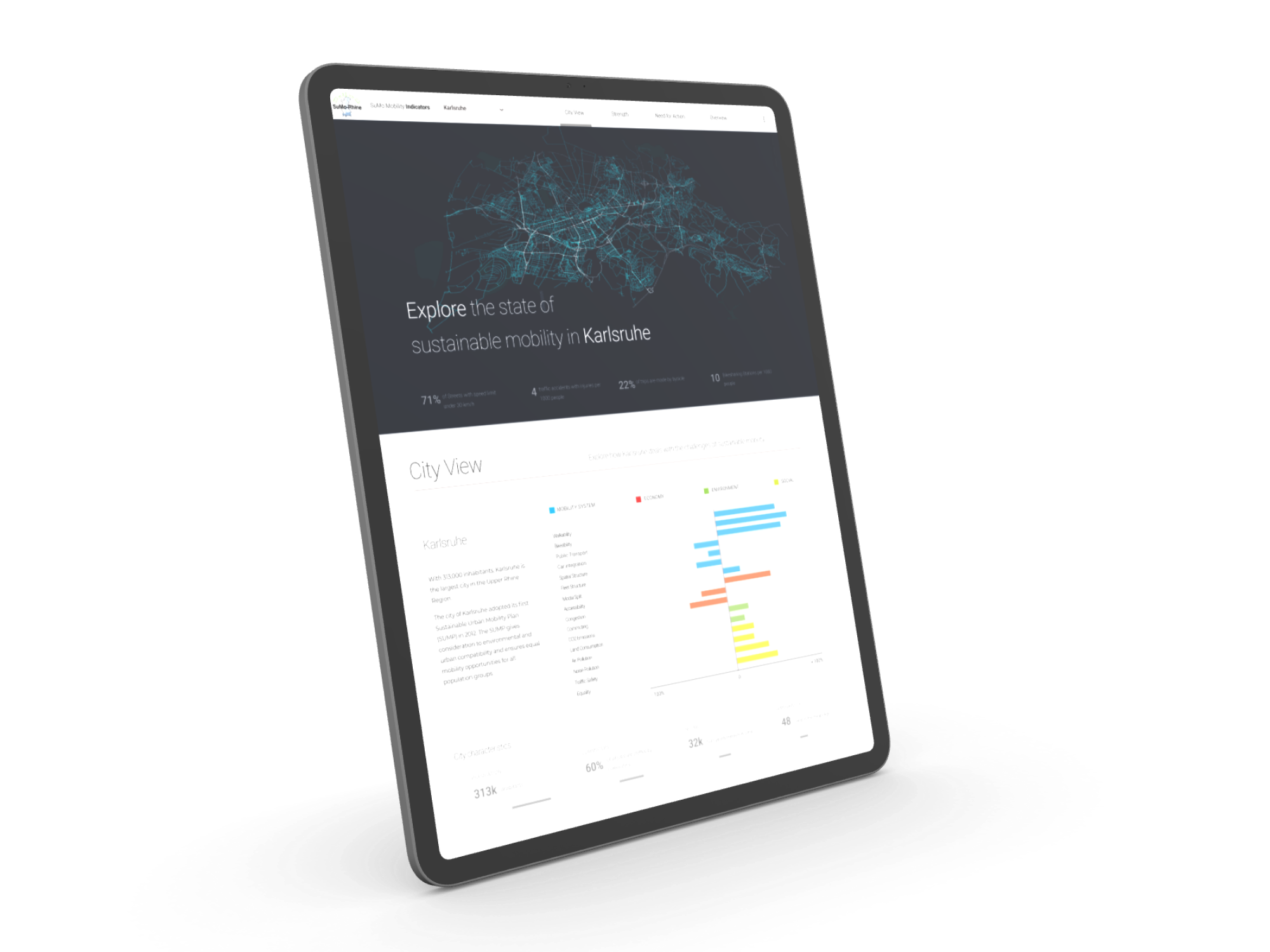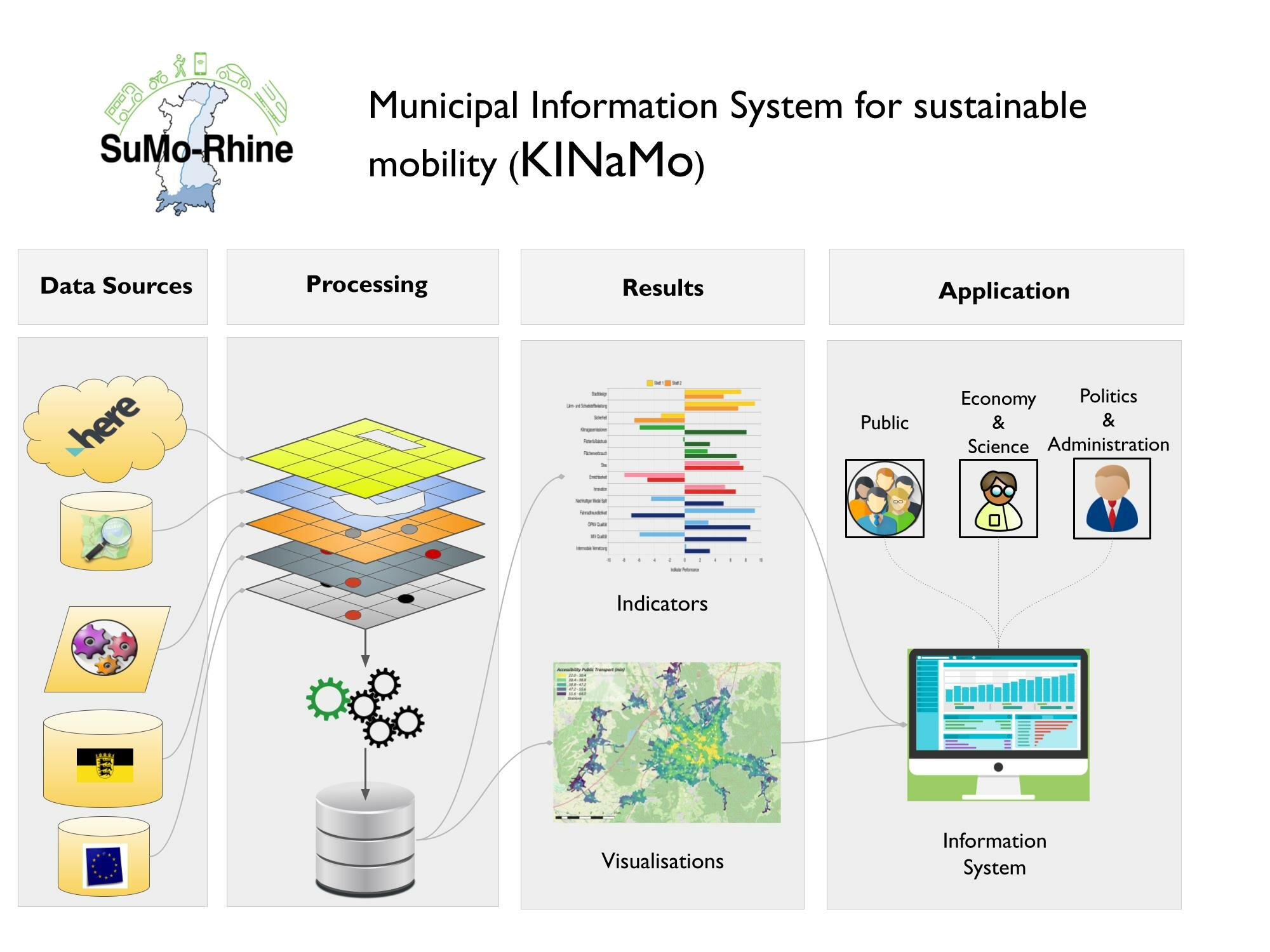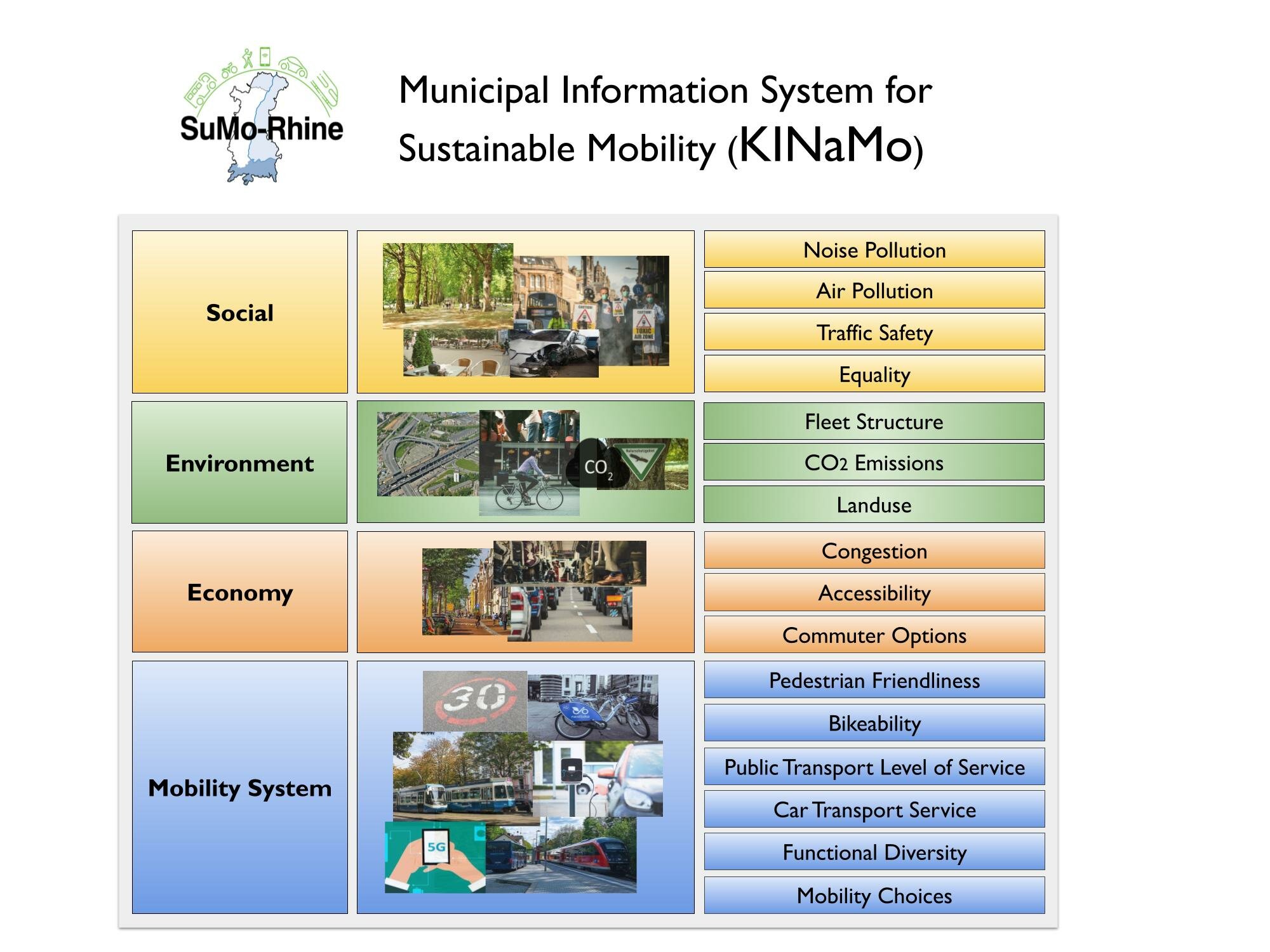Project goal
The aim of the “SuMo-Rhine – Promotion of Sustainable Mobility in the Upper Rhine Region” project, launched on 1 July 2018, is to support communities in the Upper Rhine region in setting up and expanding cross-border sustainable transport systems.
 The project partners will survey the framework conditions in the border region and the political objectives of the municipalities and, in cooperation with municipal partners and a leading international provider of mobility and infrastructure data (HERE Technologies), develop a Municipal Information System for Sustainable Mobility (KINaMo), which will enable a transnational, cost-effective and comparable assessment of municipal mobility systems. In addition, mobility users are surveyed regarding their mobility behaviour and expectations of mobility.
The project partners will survey the framework conditions in the border region and the political objectives of the municipalities and, in cooperation with municipal partners and a leading international provider of mobility and infrastructure data (HERE Technologies), develop a Municipal Information System for Sustainable Mobility (KINaMo), which will enable a transnational, cost-effective and comparable assessment of municipal mobility systems. In addition, mobility users are surveyed regarding their mobility behaviour and expectations of mobility.
As a data-driven decision support system, KINaMo evaluates the sustainability of regional mobility and, for the first time, makes it measurable at the municipal level, publicly visible and thus comparable across regions.
In this way, decision-makers from politics and industry will be able to identify potentials for improving the transport offer with low environmental impact and for increasing the market share of alternative modes of transport far more precisely than before.
Challenges
With the goal of climate neutrality by 2050, the transport sector is facing an unprecedented transformation. Mobility is a central factor in society, both economically and socially. In its current form, however, it contributes about 31% of national harmful CO2 emissions in France, about 32% in Switzerland and about 20% in Germany – the lion’s share of which is attributable to road transport in each case.
 Especially for small and medium-sized municipalities, there is currently a lack of reliable, comparable and publicly accessible information on the quality and sustainability (mobility quality) of regional mobility systems. Current and comprehensive status information is essential as a basis for planning, for prioritizing measures and for an objective exchange between all stakeholders.
Especially for small and medium-sized municipalities, there is currently a lack of reliable, comparable and publicly accessible information on the quality and sustainability (mobility quality) of regional mobility systems. Current and comprehensive status information is essential as a basis for planning, for prioritizing measures and for an objective exchange between all stakeholders.
Data from municipalities, federal states and transport companies are not published in a sufficiently machine-readable form (timetable, infrastructure, capacity utilisation) and data from large studies (ADAC Mobility Monitor, MID, the ADFC Bicycle Climate Test, Congestion Ranking) usually focus on larger cities. Existing index evaluations (e.g. SMP 2.0) require a lot of effort to use and automated solutions are internationally focused on metropolitan areas.
KINaMo indicators overview
 KINaMo combines an indicator system adapted to municipal mobility systems, a high-quality, internationally available database and automated indicator calculation. Social, environmental and economic aspects of mobility options are linked and evaluated. The current results are communicated attractively, user-friendly and free of charge via a public web application.
KINaMo combines an indicator system adapted to municipal mobility systems, a high-quality, internationally available database and automated indicator calculation. Social, environmental and economic aspects of mobility options are linked and evaluated. The current results are communicated attractively, user-friendly and free of charge via a public web application.
The final result of SuMo-Rhine and the KINaMo indicator system will be presented to the public for the first time on 17 November 2021 in Freiburg. A warm welcome!

















